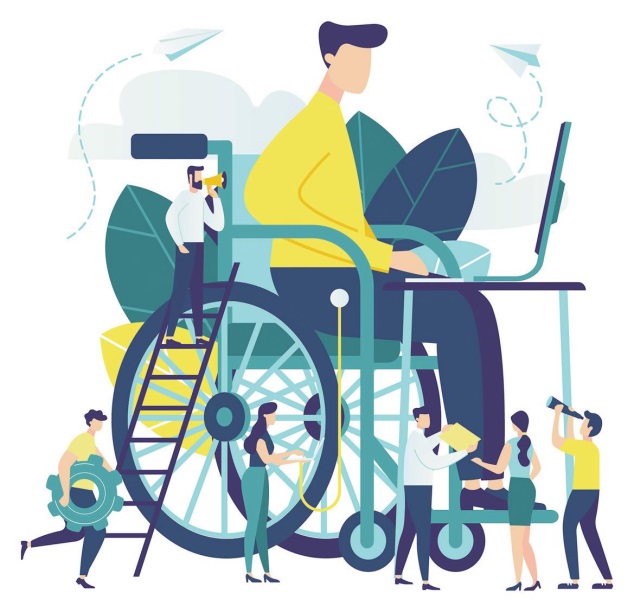INCREASING ACCESS TO COLLEGE
How a Montclair State University program is creating opportunities for inclusion in a college atmosphere.
BY ANDREW MEES
Seeking to increase inclusivity and diversity of students with disabilities in higher education, Montclair State University launched the Increasing Access to College (IAC) project in 2015 to offer comprehensive, structured support within a large, public research university environment.
The project is designed to create new pathways for people who are co-enrolled in a high school transition program, and who are not likely to attend college through traditional avenues.
Students participating in the IAC are fully integrated into campus life with peer support, and engage in auditing courses across campus, as well as participate in social and recreational aspects of college life.
The program also benefits traditionally enrolled students in Montclair's College of Education and Human Services, and students in other colleges who are involved in community-engaged course experiences with Montclair's Center for Community Engagement. Students preparing to be educators and who engage in public service, also have the opportunity to be part of the program, increasing their capacity to bring the ethics of inclusion into their future careers and lives.
"The IAC project grew out of wanting Montclair State University students studying to be teachers, to have inclusive educational experiences," said program co-founder and Professor of Teaching and Learning Susan Baglieri. "When we could not find as many inclusive schools as we wanted, we decided to create an inclusive experience on campus. We are proud of what we have been able to build in partnership with the students, leaders, and professionals from the many schools and programs, that have helped to build this road by traveling it."
HOW IT WORKS
The IAC partners with New Jersey school districts, to provide the chance to participate in courses, and engage in social opportunities and campus recreational activities, in a peer companionship model. The program is offered only in collaboration with transition programming, provided by local school districts.
Students 18-22 years old, both with and without dis-
abilities can apply to be IAC Fellows, ensuring true inclusivity within the program's experiential learning opportunities.
SERVING THE PUBLIC GOOD
The project has allowed Montclair to share the model with the academic community, and serve as a resource for local school districts prioritizing inclusion.
Baglieri and co-founder Jessica Bacon, an associate professor of teaching and learning, have published research in the Journal of Disability Studies in Education and the Review of Disability Studies: An International Journal, and Bacon recently led a group of education students to Finland, where she shared the model with Finnish educators.
"The development of the IAC has been exciting and ongoing work. We have learned a great deal from other colleges and universities across the United States, that have been building inclusive postsecondary education opportunities for decades," said Bacon. "Building the IAC at Montclair State University has allowed us to collaborate with offices, departments, and people across the entire campus.
This has provided us with unique entry points to promote inclusivity across higher education systems. As we continue to document our successes through presentations and publications, while learning from other campuses, we see the building of inclusive postsecondary opportunities as an exciting movement in the United States. Program outcomes demonstrate beneficial impacts for the futures of students with intellectual disabilities who attend college, and we are excited that Montclair has embraced the opportunity to be a part of creating a more inclusive society.”

ABOUT THE AUTHOR:
Andrew Mees is Media Relations Director for Montclair State University.